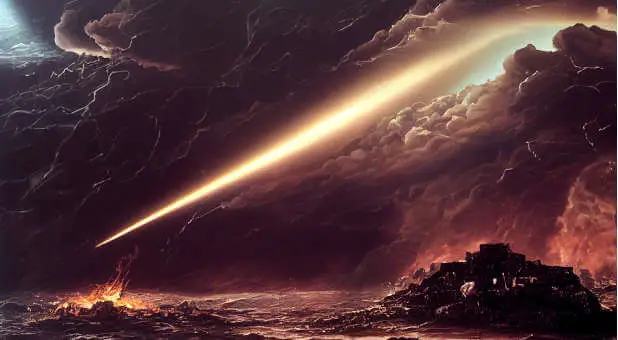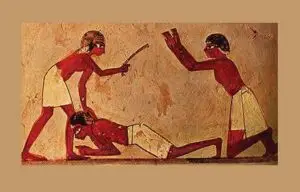Genesis chapter 18 spells out the dilemma of having to confront societies that not only violate the human rights of their citizens but, endanger civilization in its totality. Sodom and Gomorrah serve as the biblical paradigm of those societies.
The evils of these societies, as the late Nahum Sarna, Bible Studies professor at Brandeis University, puts it, “are not those of dishonoring or offending God. It is not the neglect of sacrificial gifts, the disregard of an oracular utterance, or the making of a false oath that arouses the ire of the Deity. The sins are entirely on the moral plane, and of idolatry, there is not so much as a whisper.
As with the Flood, the Sodom and Gomorrah narrative is predicated upon the existence of a moral law of universal application for the infraction of which God holds all human beings answerable.
He then quotes Israeli philosopher and Bible scholar Yehezkel Kaufmann:
The idea that there is an intimate, in fact, inextricable, connection between the socio-moral condition of a people and its ultimate fate is one of the main pillars upon which stands the entire biblical interpretation of history.
Given these understandings, the fact that the Torah brings Abraham’s questioning of God’s justice regarding the intended destruction of Sodom and Gomorrah is not short of being surprising.
This is especially so considering that when God tells Noah, “I am bringing the flood… to destroy all flesh,” Noah does not argue or even question. But, as University of Georgia biblical scholar Richard Eliott Friedman comments, when God makes known to Abraham that “the cry of Sodom and Gomorrah is great,” Abraham opens his mouth and enters upon one of the most remarkable confrontations between a human and God in the Bible.”
Jon D. Levenson, Bible professor at Harvard, points out that at first glance, it seems as though the patriarch is protesting the element of indiscriminate destruction in the Lord’s plan and asking it to be replaced by a surgical strike against the offenders alone. However, a closer look reveals that Abraham is actually asking that the existence of a righteous minority stave off destruction for the entire town, sinners included.
In other words, Abraham is arguing that maybe the wicked should be spared not only out of mercy and compassion for the righteous but maybe because the existence of a righteous minority may neutralize the evil of even a majority.
It is this belief that leads many of the leaders of the free world and public opinion all over the Western Hemisphere to hesitate in the eradication of evil from the earth.
It is this toleration of evil that creates the window of opportunity that allows for the continuous raining of misery, terror, suffering, and death falling upon millions of human beings in the Middle East and parts of Africa.
The sin of Sodom and Gomorrah, as well as their modern counterparts, is a monstrous moral and social corruption, an arrogant disregard of basic human rights, and a cynical insensitivity to the suffering of others.
Every responsible leader, from the Allies who had to decide on bombing Dresden or risk additional Allied casualties and leaving Hitler in power to Israeli government officials responding to indiscriminate rocket attacks upon Israel’s civilian population, ask, like Abraham, if there is not another possibility.
Abraham’s challenge to ultimate justice is recorded in the TaNaKh because that’s the first thing any decent human has to do: to consider innocent life far over truth and justice.
Torah, however, is not wishful thinking; it is the result of confronting humanity’s highest hopes with the hardest of realities.
After Abraham began his hopeful challenge of finding the metaphorical fifty innocent people, he was forced to reduce the amount. Finally, he has to acknowledge that “ten innocent individuals” will not offset evil.
The message is that evil cannot be eradicated other than forcefully. There is never enough goodness in the world to offset the destructive power of those that have no regard for human life.


